Moscow To Supply Tehran With Sukhoi Su-35 Fighter Jets: Report
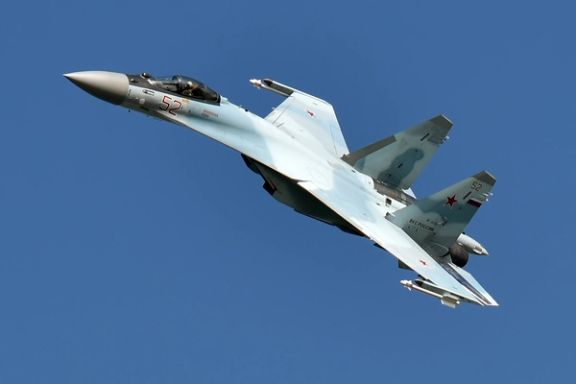
Russia is reportedly preparing to provide the Islamic Republic with Sukhoi Su-35 fighter jets in the near future, Israeli media have reported.

Russia is reportedly preparing to provide the Islamic Republic with Sukhoi Su-35 fighter jets in the near future, Israeli media have reported.
Israel’s Channel 12 quoted some Western intelligence officials on Saturday that as many as 24 jets that were originally intended for Egypt, but thwarted by the US, could be delivered to Tehran.
The Times of Israel says the report also indicated that Iranian pilots have already been trained to use the jets.
Washington has been recently warning that Tehran and Moscow have extensively developed their military relations, as Iran has supplied kamikaze drones that Russia has used against Ukraine.
Both countries are hit by harsh sanctions — the Islamic Republic over its nuclear program and Russia for its war on Ukraine.
A top Ukrainian official called Saturday for the "liquidation" of Iranian factories making drones and missiles, as well as the arrest of their suppliers.
Writing on Twitter on Saturday, Ukrainian presidential aide Mykhailo Podolyak said Iran "blatantly humiliates the institution of international sanctions", before calling for the destruction of Iranian weapon factories in response.
Kyiv has accused Tehran of supplying 1,700 Shahed-136 loitering drones to Moscow. Iran has acknowledged drone deliveries but insists this was not for war in Ukraine.
Western governments have also voiced concern over possible Iranian plans to supply missiles and more weapons to Russia, as the United States and its allies have been sending weapons to Ukraine to turn the tide of the war and not allow Russia to capture more Ukrainian territory.
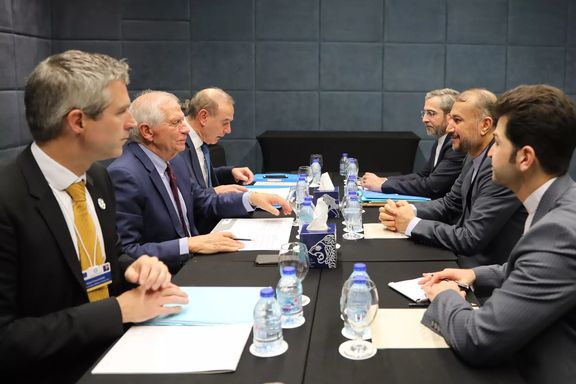
Debates on Iran's unsuccessful foreign policy and the Raisi administration's obvious weakness in this area have come into the spotlight in Iranian media.
The debate began following Foreign Minister Hossein Amir Abdollahian and chief nuclear negotiator Ali Bagheri's reportedly unsuccessful meeting with EU foreign policy chief Josep Borrell in Amman.
Iranian academic Pirouz Mojtahedzadeh said in an interview with Didban Iranwebsite that "Iran's foreign policy is bankrupt." He charged that Iran's diplomats are not well experienced and well trained, adding that Tehran's foreign policy is ideological. He also charged that IRGC generals are the wrong people in the foreign relations arena.
Elsewhere in the interview Mojtahedzadeh argued that the foreign ministry should have a technical rather than ideological approach to foreign policy, adding that Iran needs skilled diplomats who can at least speak English. He said Iranian diplomats should confront their international counterparts, even US diplomats based on the country's national interests rather than any ideology.
Meanwhile, criticizing Tehran's foreign policy priorities which is evident from its attempts to get closer to Moscow and Beijing. He lashed out at China for "its double-standards in the region" and said "Russia will also let us down."

Career diplomats such as Ahmad Azizi have also expressed disappointment over the performance of the foreign minister and his team. Azizi, a former deputy foreign minister, ambassador to Germany and the broker of the deal with the United States over releasing US diplomats who were taken hostage in Iran following the 1979 seizure of the US embassy in Tehran, wrote in a letter to Kamal Kharrazi, the head of Khamenei's Foreign Relations Council that "The foreign minister cannot do anything. Please think of a solution yourself."
Azizi said in the letter that "the chronic and painful crisis of sanctions needs an urgent solution." Meanwhile, he stressed: "The problem is that we have never thought of any problem as a crisis!" He reiterated that solving many of Iran's problems,” including the current economic pressure on the people, “depend on tackling the crisis of sanctions."
According to the letter, published as an op-ed in the reformist daily Etemad, "The routes to decision making in Iran are closed in the Iranian political system which is facing a catalogue of crises. "
As a result of these crises, Iranians' shopping baskets have become increasingly smaller while there is no solution in sight for the problems of industries and entrepreneurship including rising unemployment figures and the government's indecision about the future of the young generation.
The biggest hurdle is opposition by Iran's hardliners to reviving the 2015 nuclear deal based on their ideological, anti-US stance. On Thursday, Hossein Shariatmadari the editor of Khamenei-funded ultraconservative Kayhan newspaper lashed out at Iranian negotiators and diplomats for expressing readiness for a deal with the West during the meeting in Amman.
He wrote: "Why did you say you were ready for negotiations over the JCPOA while Europe and the United States are insisting on their support for Iranian rioters [protesters]?" Other Iranian media including Didban have said that Shariatmadari's opposition to renewed negotiations reveals that a key part of the Iranian government opposes the revival of the talks.
Shariatmadari's connection to Khamenei, once again point fingers at the Supreme Leader as the main obstacle to a deal that could save ordinary Iranians from a long-standing financial misery.
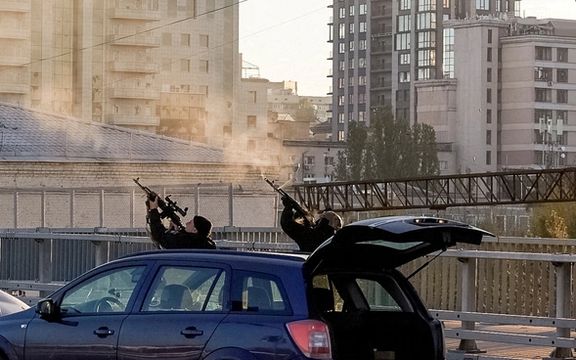
A top Ukrainian official has called for the "liquidation" of Iranian factories making drones and missiles, as well as the arrest of their suppliers.
Writing on Twitter on Saturday, Ukrainian presidential aide Mykhailo Podolyak said Iran "blatantly humiliates the institution of international sanctions", before calling for the destruction of Iranian weapon factories in response.
“Iran, planning to boost missile, drone supplies for Russia, blatantly humiliates the institution of international sanctions… Important to abandon nonworking sanctions, invalid UN resolutions concept, & move to more destructive tools – liquidation of plants, arrest of suppliers…,” he tweeted.
Podolyak’s statement comes days after Ukrainian President Volodymyr Zelenskyy visited Washington to solidify US military and economic support for his country.
It was not clear if the tough statement by the Ukrainian official meant as a suggestion for the US to undertake the destruction of Iranian drone factories, a feat that would mean a military attack on Iran and possibly a regional war in the Middle East. Israel in recent past targeted Iranian nuclear facilities in large-scale and successful sabotage acts,
Kyiv has accused Tehran of supplying 1700 Shahed-136 loitering munitions to Moscow, which it says have been used to hit targets in Ukraine since September. Iran denies the allegations.
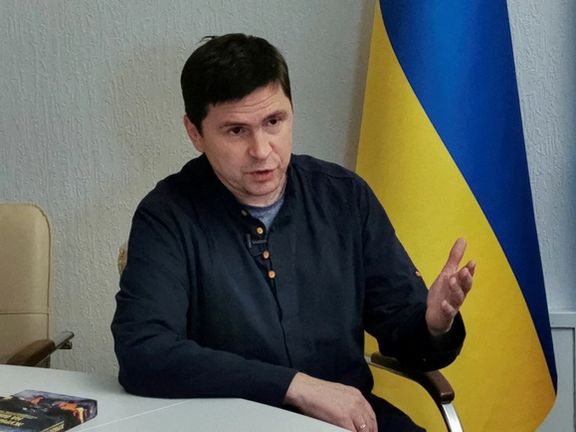
Kyiv has also accused Tehran of planning to supply more weapons to Russia, including missiles that Moscow needs as its stockpiles dwindle after months of relentless attacks against civilian and military targets.
Western governments have also voiced concern over possible Iranian plans to supply missiles and more weapons to Russia, as the United States and its allies have been sending weapons to Ukraine to turn the tide of the war and not allow to capture more Ukrainian territory.
Ukraine's espionage chief said in an interview released on Friday that Russia had already launched around 540 of the drones at military and energy targets in Ukraine.
The United States and its European allies, as well as the European Union have sanctioned various Iranian individuals and entities for supplying drones to Russia. As the United Kingdom imposed sanctions on Iranian entities December 13, foreign secretary James Cleverly said that the UK sanctions were “taking the wheels off the Russian war machine.” A statement issued by the foreign offcie referred to “information” released by the US December 9 - apparently a statement by White House National Security spokesman John Kirby - showing Iran had become “one of Russia’s top military backers.”
Iran has denied supplying weapons to Russia for its war in Ukraine, but foreign minister Hossein Amir-Abdollahian after earlier denials acknowledged in early November that Tehran had supplied drones to Moscow “months before” the Ukraine war, leaving it vague if these were used in the war.
In a second tweet, Podolyak also mentioned North Korea and Belarus as countries aiding Russia’s war effort, saying, “Iran (drones/missiles), North Korea (ammunition/weapons), Belarus (infrastructure/territory/equipment). Factually & legally confirmed allies of RF in the war of aggression, mass murders of civilians & deliberate destruction of Ukrainian cities. There will be joint accountability.”
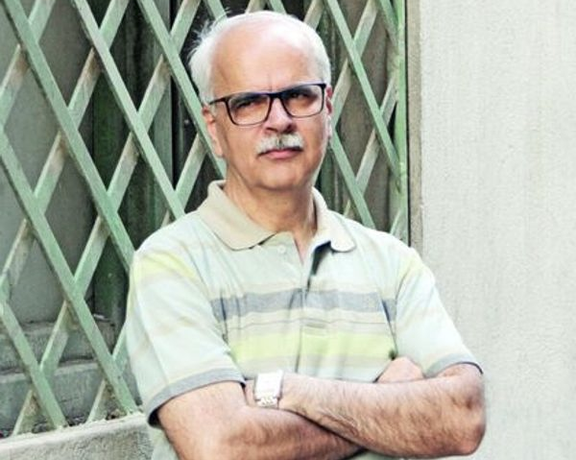
Reports say a revolutionary court in Tehran has sentenced Saeed Madani, a prominent political commentator and researcher, to nine years in prison.
Madani was arrested in May accused of “formation and management of anti-government groups”, “holding gathering and conspiring to commit crimes against the country’s security" and "propaganda against the Islamic Republic of Iran”.
Madani − whose research interests include poverty, drug addiction, child abuse, and prostitution − belongs to the banned Nationalist-Religious Alliance, a small non-violent religious opposition groups that favors political reform and welfare economics.
He has been sentenced and imprisoned several times for membership in the group and for “propaganda against the state.” In 2016, he was exiled to the southern port city of Bandar Abbas after four years of an eight-year prison sentence served at Evin prison, Tehran.
Iran has arrested hundreds of university students, writers and cultural leaders during 100 days of anti-regime protests that began in September.
He has been associated with various opposition groups in Iran, and in response to his criticism of the government’s handling of the COVID pandemic, he was stopped by the IRGC in January this year from traveling from Tehran to take up a post at Yale University.
Madani, 61, a sociology professor at Tehran’s Allameh Tabatabai University, has published several books on social issues in Iran.

Some pundits in Iran are reminding the hardliners that a few months ago they were predicting Europe’s agony in winter cold, while now Iran faces energy shortage.
Heshmatollah Falahatpisheh, an outspoken critic of the government in foreign policy, nuclear talks and energy, says predictions by Iranian officials that Europe would plunge in cold and darkness this winter and they would run back to nuclear negotiations with Iran have turned out to be "illusions."
Some Iranian officials including Mohammad Marandi, who accompanies Iranian nuclear negotiators, have been saying since last summer that "a hard winter in Europe" will force European powers to come back to the negotiating table. Marandi had predicted: "The winter is coming, and the EU will have to face a paralyzing energy crisis."
The hardliner editor of the ultraconservative Kayhan daily had also said in the summer that after "only two months" the United States and Europe will beg Iran to resume the negotiations and will surrender to Iran's terms.
The flawed argument was being used to justify Tehran’s hard position after 18 months of multilateral talks to revive the 2015 nuclear deal with the West, which would lift crippling sanctions imposed on Iran.
Hardline officials were making these claims while Europe needed natural gas, something Iran does not produce enough of to export and has no way of shipping it to Europe. On the contrary, Iran is suffering from a natural gas shortage this winter like every year. It shut down several cement factories this week only to save gas for homes.
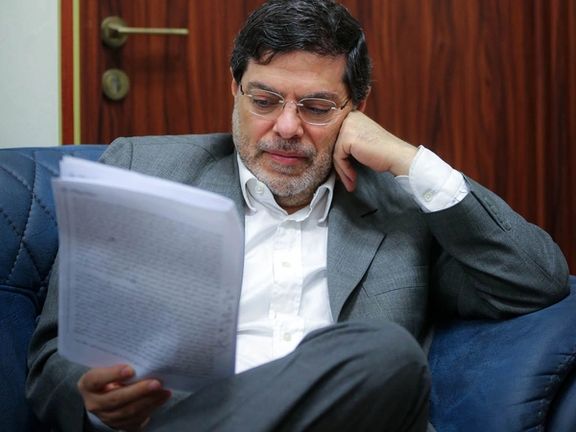
Falahatpisheh, the former head of parliament's foreign policy and national security committee also criticized Iranian officials in an interview with the moderate conservative Khabar Online website, saying that "They are selling Iran's oil at a discounted price and still take pride in it."
The former lawmaker said that Iranian officials and hardliner commentators have been taken by surprise as their misplaced predictions in foreign policy did not come true.
Falahatpisheh also noted that while Iran counts on Russia as a "strategic ally," Russia has been selling oil at a discounted price, and Iran has no solution for its oil other than offering even more discounts than Russia. He added that Iranian officials take pride in selling oil despite US sanctions and call it a "victory", while what they are doing is wasting Iran's wealth to the tune of millions of dollars a day.
Tejarat (Commerce) Daily in Tehran quoted some oil market experts as saying that Iran has been lately selling its oil at the price of $37 per barrel while the market price for oil is around $79.25 per barrel. According to estimates, the production of every barrel of oil costs Iran nearly 30 dollars due to its aging equipment after years of token investments.
On the other hand, Iran's neighbor, Saudi Arabia invested some $82 billion in infrastructure in the past ten years to preserve its supremacy in the oil market.
Falahatpisheh in his interview argued that "Iran needs a new spirit in its foreign policy. In today's world only the countries are successful that have managed to reduce tensions with other countries." He suggested that Iran's first measure should be to settle differences with other countries and take serious steps toward détente. He said: "I believe the US and EU's current policies will not last forever. These policies are mainly meant to reduce Iran's bargaining power. However, the West will return to negotiations when and if they see that Iran has resolved its internal crisis and everyone, including all Iranian officials, are behaving in a way to serve the country's national interests."
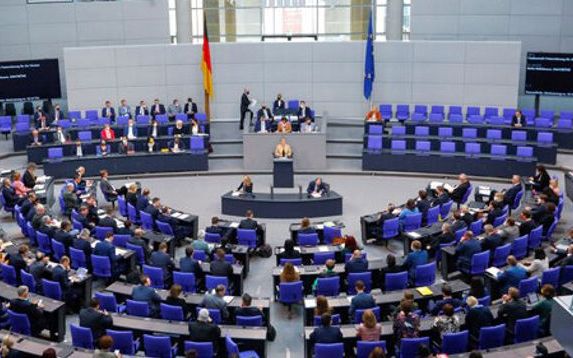
A group of 43 members of the Social Democratic Party in the German Parliament demanded that the Islamic Revolutionary Guard – or IRGC --be designated as a terrorist group.
Some representatives said, "A regime that defends its survival only by assassinating its own people has lost its legitimacy." Considering that other German parties such as Alliance 90/The Greens, and Free Democratic Party also seem to favor such a measure, it is possible that the IRGC will be blacklisted by Berlin and the European Union. The list of countries that have designated the Revolutionary Guard is increasing.
Kaweh Mansoori, a member of the party with Iranian roots, also said, "We are ready to take tougher and more intense steps than the previous sanctions of the European Union against the barbaric clerical regime.”
In November, the German parliament – the Bundestag -- passed a comprehensive package of measures against the Islamic Republic following a session on the current situation in Iran. The ratified motion, submitted by a coalition of factions, called on the German government to support the protest movement in Iran and increase pressure on the regime in Tehran.
The lawmakers also called to further examine whether and how the Islamic Center in Hamburg (IZH) can be closed for good, calling it "the hub of the operations of the Iranian regime in Germany.” Germany has already expelled Iranian cleric Soleiman Mousavifar, who was the deputy head of the IZH, from the country for his support for Shiite extremist and terrorist organizations.
Moreover, on Thursday the Dutch Parliament passed a motion urging the government to support EU's proscription of IRGC as a terrorist organization, considering the repression of protesters and supply of drones to Russia.
The motion was introduced to designate the IRGC as a terrorist group both at the national and European level.
Earlier this month, the EU designated 20 people and Iran’s state media over reported human rights abuses, along with eight people or entities over sending drones to Russia.
The pressure on the IRGC is not limited to putting it on the list of terrorist organizations, as there are other demands about human right issues related Tehran’s crackdown of dissent.
Several members of the German parliament have politically sponsored Iranian political prisoners most of whom are in danger of imminent execution on bogus charges. The number of German MPs taking political sponsorship of Iranian protesters is growing. Political patronage or sponsorship (politische patenshaften in German) is a way for the lawmakers to select a specific political prisoner and use their political weight to campaign for the prisoner’s freedom. This is mainly done by addressing the ambassador and the relevant government and international institutions dealing with human rights.
Also on Tuesday, all 183 members of the Council from four major parties said they will sponsor 183 prisoners including those sentenced to death for their participation in the current wave of antigovernment protests in Iran, ignited by the death in custody of 22-year-old Mahsa Amini.